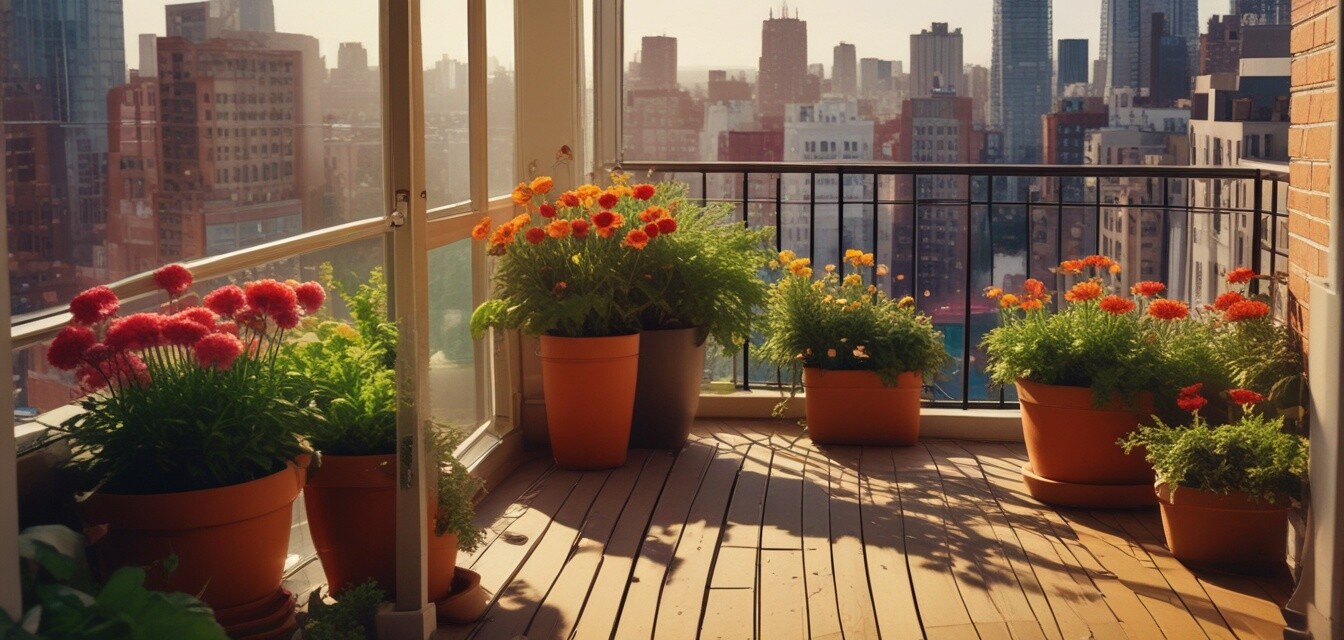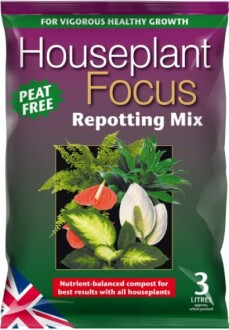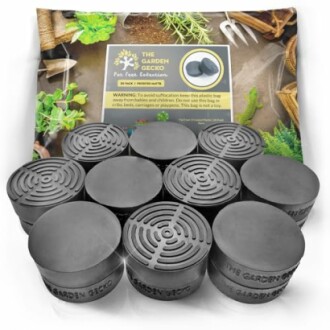
Eco-Friendly Choices for Container Gardening
Key Takeaways
- Opt for biodegradable pots and containers.
- Choose organic and native plants to support local ecosystems.
- Utilize sustainable soil mixes and fertilizers.
- Implement drip irrigation for efficient watering.
- Use recycled materials for garden decor and tools.
Container gardening is an excellent solution for urban dwellers looking to embrace gardening without the need for extensive outdoor space. By making eco-friendly choices, you can enjoy your green oasis while promoting sustainability and caring for the planet. In this article, we will explore how to choose sustainable materials, select the right plants, and implement environmentally-friendly practices for flourishing container gardens on your balcony.
Why Choose Eco-Friendly Materials?
Incorporating eco-friendly materials into your container gardening setup reduces the environmental impact of gardening practices while enhancing the overall health of your plants. Here’s a look at some materials that make a difference:
Types of Eco-Friendly Materials
| Material | Description | Benefits |
|---|---|---|
| Biodegradable Pots | Made from materials like bamboo, coconut coir, or recycled paper. | Reduce plastic waste and break down over time. |
| Natural Fibers | Jute, sisal, or hemp can be used for liners and ropes. | Biodegradable and provide excellent breathability for roots. |
| Recycled Containers | Old buckets, cans, or storage bins can be repurposed. | Helps in reducing waste and encourages creativity. |
Choosing the Right Plants
When selecting plants for your container garden, consider opting for native and organic varieties. These plants are adapted to your local environment, require less maintenance, and support local wildlife. Here are some options:
Native Plants for Urban Spaces
- Lavender: Attracts pollinators and is drought-resistant.
- Echinacea (Coneflower): A beautiful flower that supports beneficial insects.
- Wild Strawberries: Provide delicious fruits and are low maintenance.
Herbs and Edibles
Growing your own herbs is an excellent way to ensure freshness and reduce your carbon footprint:
- Basil: Ideal for container gardens and enhances meals.
- Parsley: A versatile herb that thrives with minimal care.
- Mint: Grows well in containers but may require regular pruning.
Soil and Nutrients
The soil you choose plays a significant role in the health of your plants. Consider the following:
Eco-Friendly Soil Options
| Soil Type | Description | Benefits |
|---|---|---|
| Peat-Free Mix | Made from coconut coir or composted bark. | Helps reduce the depletion of natural peat bogs. |
| Compost | Decayed organic matter that enriches soil. | Provides essential nutrients while improving soil structure. |
| Organic Fertilizers | Derived from natural sources such as seaweed or manure. | Supports healthy plant growth without harming the environment. |
Product Highlight: Houseplant Focus Repotting Mix
Houseplant Focus Repotting Mix
A professional-grade potting soil that is peat-free and optimized for healthy indoor plant growth.
Learn MoreWatering Efficiently
Proper watering is essential for the health of your container garden. Here are tips for efficient watering:
Watering Techniques
- Use drip irrigation to minimize water waste.
- Collect rainwater for eco-friendly watering solutions.
- Water in the early morning or late evening to reduce evaporation.
Creative Reuse: Decor and Tools
Repurposing items can enhance your garden's aesthetics while reducing waste. Consider these ideas:
Ideas for Recycled Materials
- Old wooden pallets can be transformed into vertical gardens.
- Glass jars serve as beautiful plant vases or storage for tools.
- Cans can be painted and used as colorful planters.
Product Highlight: Garden Gecko Invisible Pot Feet
Garden Gecko Invisible Pot Feet
Ensure your pots are elevated to protect your balcony and enhance drainage with these rubber pot risers!
Learn MoreConclusion
By making eco-friendly choices—ranging from materials and soil to plant selection and watering methods—you can create a lush, sustainable container garden on your balcony. Not only does this support a more sustainable lifestyle, but it also enhances the beauty of your urban space. Ready to start your eco-friendly garden? Check out our DIY balcony garden projects for some innovative ideas!

